Musician: SLAID CLEAVES
Video: “One Good Year”
SLAID CLEAVES AT BLUE ROCK ALIVE! COOL NIGHTS 2020 THIS THURSDAY, NOVEMBE 19
Slaid Cleaves will be featured at the Blue Rock aLive! Cool Nights 2020 virtual concert series this Thursday, November 19. The series is “for the songs, for the artists, for all of us.” You can buy a Season Pass for only $105—and have a seat in the house by sending in your headshot. They will place the large headshot on a seat, so you will literally be sitting in the room.
Blue Rock’s innovation, quality and creativity is evidenced in concerts produced with broadcast quality audio-video from their renowned Texas room—streamed straight to you. Individual tickets can also be purchased for $25: https://bluerocktexas.com/events.
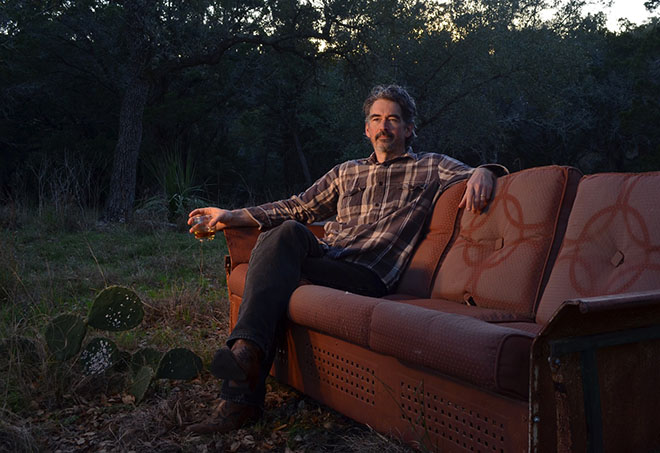
Photo credit Karen Cleaves
In 1992, Cleaves was a winner of the prestigious New Folk competition at the Kerrville Folk Festival. Of his dozen studio albums, four were recorded and nationally-released on the Rounder-Philo label from 1997-2006. During that time, Cleaves had an Americana charts hit with “Broke Down” from his 2000 album Broke Down.
Cleaves intricately weaves thoughtful, introspective lyrics into simple melodies as he seems to effortlessly paint each masterpiece.
We talked with Slaid Cleaves about his unconventional approach to songwriting, his love for telling stories, how hard work and determination eventually pays off, what keeps him hopeful and how his songs reflect his journey across the American landscape as he searches inward.
SLAID CLEAVES Interview
with M Music & Musicians magazine publisher, Merlin David
Tell us about one of the songs you will play at Blue Rock’s Cool Nights 2020.
“One Good Year”—was inspired by a friend who was down on his luck. The song evolved, with the help of co-writer Steve Brooks, into a plea for relief—for a change of luck. I’m guessing most people watching the show will be able to relate.
Who originally inspired you to write songs?
I listened to a lot of music. I started learning how to play my favorite songs. It’s a tough step going from playing covers to writing your own songs.
Tell us about your songwriting process?
I’m always on the lookout for an interesting story, character, turn of phrase or something I am or someone else is going through. Then I write them down and hole myself in a guest room or hotel room to get away from daily chores. I look at the ideas—combine them or extrapolate them and work them into songs. Eventually, I’ll finish them.
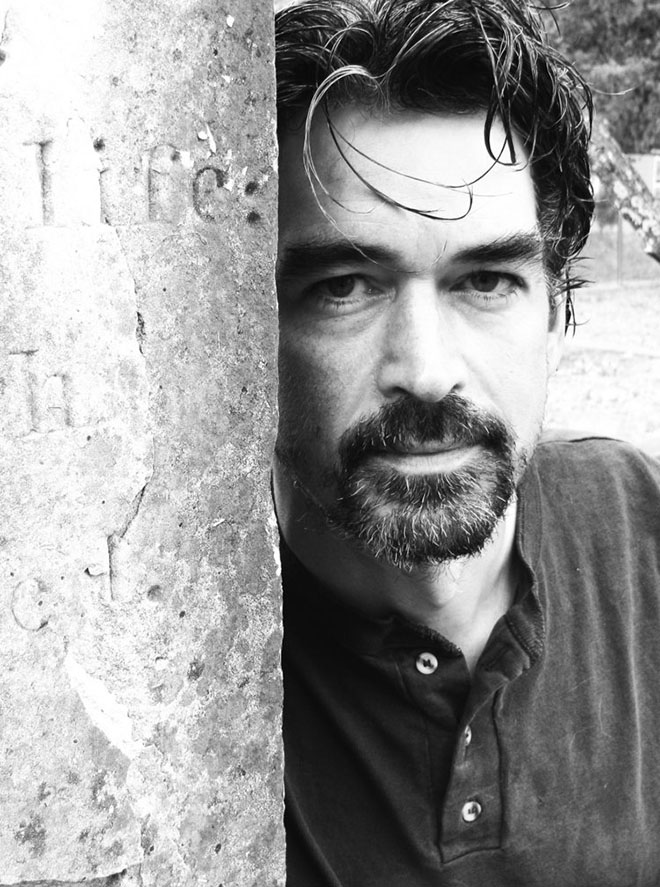
Is it difficult to finish writing a song?
For many years, I had to actually leave the house to work on a song. Karen would pack a lunch for me and I’d get in the car and drive out to a State park, a roadside stop or some peaceful place—just to be alone. I sometimes got a few looks like “What are you doing here, boy.” But I told Karen I wouldn’t come home until I wrote a song. Once, I wrote a whole album in my car. (Laughs) It was my first batch of Texas songs in 1992-93. I also had a rule—once I wrote a song someplace, I couldn’t go back to that place because the place was used up. It was just a superstition.
Slaid Cleaves intricately weaves thoughtful, introspective lyrics into simple melodies as he seems to effortlessly paint each masterpiece.
Do you have any other rituals?
In the early years, I didn’t have a place to go and be alone. For several years, a patron would offer me his guesthouse or a hotel room and I’d go up there for 3 or 4 days. Now, I’m lucky. We have a little detached guesthouse—it’s my office. That’s where I write. I have to preserve the sense of actually leaving—so I pack a suitcase with clothes, books and other things to inspire me. Karen packs me some food and brings me dinner every night—but we don’t talk with each other, all day. I get to pretend I’m on the road. (Laughs) She’s my booking agent so when I’m in writing mode I don’t want any business distractions. That’s how I wrote the most recent album.
Was that Ghost on the Car Radio?
Yes. It was recorded in 2016 and came out the following year. It was the first album I released on my own—without any label, since the early 1990s. I forgot how much work is involved in putting out an album.
What songwriting tip would you like to offer?
One trick I learned early on is to just add verses to another song—like a Hank Williams song. The meter and melody is already there. Then, when you get three or four new verses, you just pull your verses back out, change the melody a bit and voilà! At first I thought this was cheating but then I heard Pete Seeger describe this as “The Folk Process.”
What instruments/equipment can you not live without?
I used to scribble in notebooks, but these days I’m dependent on a laptop for rearranging text and a cell phone for quick melodic ideas (before I forget them) and rough demos. Still have the same old Gibson guitar, though.
Which Top 5 Musicians inspired you to become a musician?
My Dad played guitar around the house, when I was very young. He and my Mom shared an inspiring record collection that I was constantly exposed to. They set me on my path. When I was still a teen, bands like the Clash and U2 were stressing the DIY attitude that welcomed the untrained musician to join in the fun. Springsteen’s Nebraska album, with its bare bones production, showed me I didn’t need a big band or a studio—just songs, good songs, and a guitar.
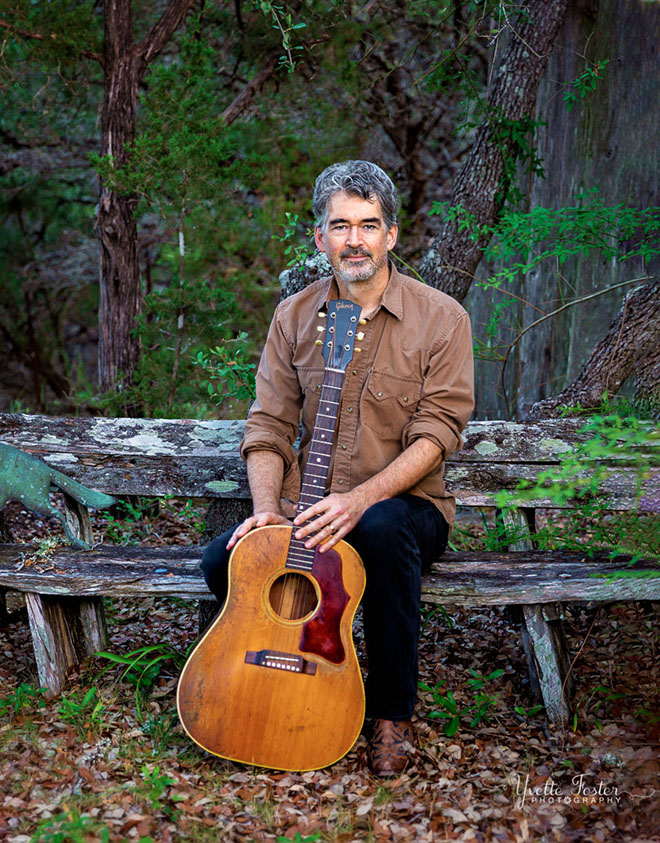
What are your Top 5 favorite albums of all time?
Nebraska (1982) — Bruce Springsteen
Rain Dogs (1985) — Tom Waits
Mission of the Crossroad Palms (1995) — Steve Forbert
Hard Times in Babylon (2000) — Eliza Gilkyson
Dear Danger (2015) — Billy Harvey
What’s one of the most requested songs in your live shows?
“Breakfast in Hell” has somehow run up 4 million streams on Spotify and gets requested a lot, 20-odd years after I wrote it. It’s the heroic tale of a local lumberjack I heard when I visited friend and producer Gurf Morlix at his summer cabin in Ontario.
Do you remember the first time you heard one of your songs on the radio?
Kevin Connor was on KGSR in Austin. He played my first CD that came out around 1992. It was a local show and it was great. I really appreciated it. But the bigger thing happened when “Broke Down” started getting in rotation at KGSR, other Austin stations and a dozen or two stations around the country—that’s when it was really exciting. I’d hop in the car and boom—there was my song. It was pretty thrilling.
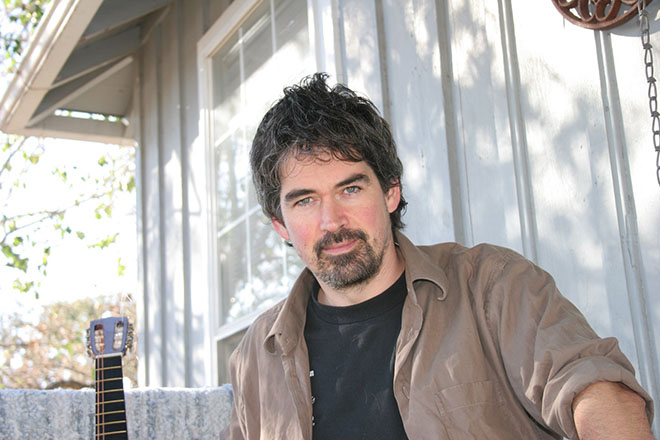
Photo credit Karen Cleaves
Any other memorable radio moments?
I made Broken Down in 1999. The label [Rounder-Philo] didn’t want to put it out until January of 2000. I kept waiting. January rolled around, it sold a couple hundred copies in a few weeks, but nothing big. Then, I headed out in a Dodge van I bought from the side of the road. I was all by myself, ready to start the Broke Down tour—making my way to the Folk Alliance in Cleveland, Ohio. It was late January, early February, and I picked up five guys along the way. (Laughs) Broke Down seemed like my last stand. I hadn’t built an audience and I was losing money every year—couldn’t get a crowd, couldn’t get on the radio. I was determined to give it everything I had. On the very first day of this trip, I was on my way out of Texas and passed through North Dallas on I-35 for the first gig in Oklahoma—when I heard “Broke Down”—just as I was leaving Texas. I couldn’t believe it. It was the first time I’d heard the song on the radio. It was a good omen. By the end of the year, I finally had an audience, a crowd, airplay and all sorts of offers coming my way. It was a life-changing year for me. That Broke Down album was pivotal. It was the difference between going more in the hole and paying off debts.
Tell us a “pinch me” moment when you thought “Wow, this is really happening to me!”
As part of a Woody Guthrie tribute show I was singing some new, post 9/11 verses I wrote for “This Land is Your Land”—while Pete Seeger was on stage with his banjo, just a couple of feet away. I was hoping he wouldn’t object.
What makes Blue Rock such a special place to play?
A few years back, I played an in-the-round show with Eliza Gilkyson and Bruce Robison. Billy and Dodee have created an amazing place to play music.
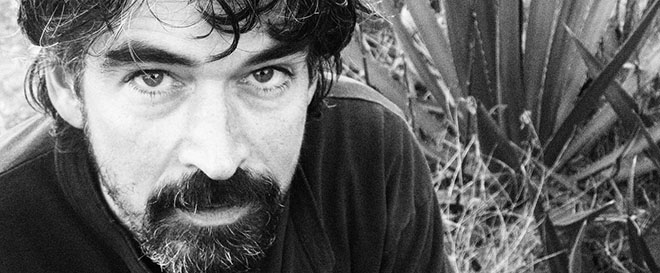
What is the best advice someone has given you?
In the mid-1990s, music manager Mike Crowley gave me some free advice: Claim www.Slaid.com, and make a website filled not with promotional material, but personal, unique content. I ended up writing a bunch of short essays that are still up on my site.
What advice would you give upcoming musicians?
One of the essays I wrote was “Advice to a Young Musician”:
https://www.slaidcleaves.com/stories/2013/3/25/advice-to-a-young-musician
How do you remain hopeful in this strange and unique socio-political time?
By turning off the damn phone, walking out in nature and talking with my neighbors.
Where can new fans get more info and stay updated?
Instagram: @slaidc
Twitter: @slaidc
Facebook.com/slaidcleaves
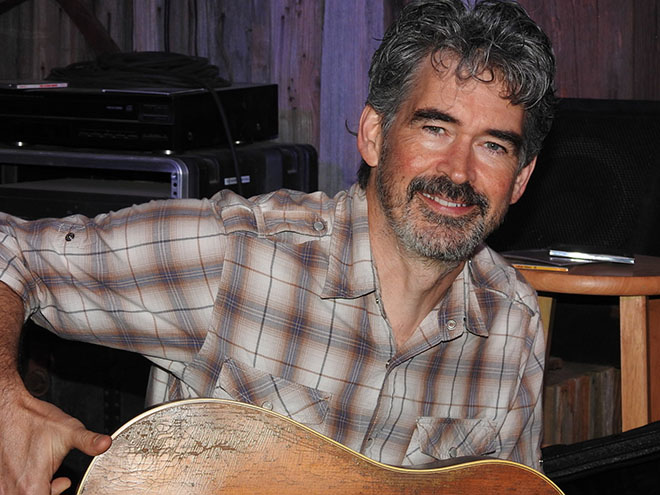



comment closed